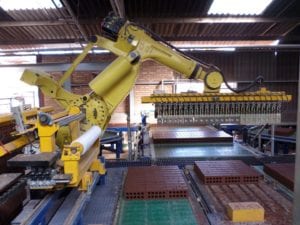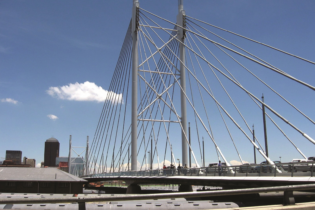
Corobrik’s new robotic technology at its Lawley Factory
Following the introduction of this unique robotics’ system at its Rietvlei factory, Corobrik installed the uniquely manufactured setting system at its Lawley Factory in October last year.
“This robotics’ system had to be specially designed for the Lawley factory because of its distinctive manufacturing specifics, making this one-of-a-kind setting technology in the industry,” explained David Matlou, Corobrik Manufacturing Director.
“By installing this innovative technology, Corobrik will achieve incremental reductions in energy consumption, thereby lowering greenhouse gases, while also giving our customers even better products.”
Building on an energy efficient legacy
He said that the improvements made by the robotics serve to build on the clay bricks’ already energy efficient nature.
Burnt clay bricks have a very low embodied energy and the new system further decreases energy demand in the production of each brick.
Clay brick walls, which are particularly effective in South Africa’s extreme climate, absorb heat during the day and slowly release it during the night thereby delaying heat transfer and reducing the need for artificial climate control.
The robotics will allow flexibility in production as it can run out of Eskom peak tariff hours, lowering the demand on the energy grid.
Further to this the consistent gaps in the setting pattern achieved by the robotics allow for easy access of heat during the drying and firing processes which optimises the amount of energy required for the brick production.
Improved product quality
Matlou explained that the product quality is significantly improved owing to the precision handling of ‘green’ products by the robots, which eliminates handling damage resulting from manual setting.
“This sophisticated technology minimises defects which means fewer rejects and a better quality, uniform, end product for our customers,” he said.
The engineering team, led by Daniele Torricelli, as well as the factory management team led by Andreas Ntseki, delivered the project on time and within the R22 million budget.






